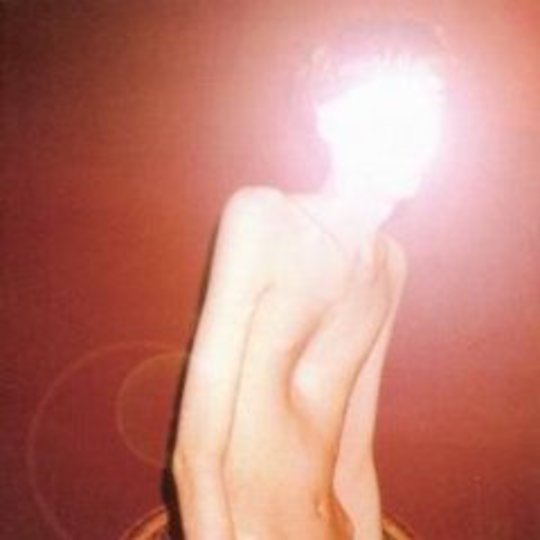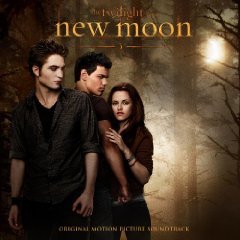One of many unsatisfactory things about end-of-decade retrospectives is that musicians are rarely so accommodating as to plot their careers in nice, convenient ten year cycles. Nonetheless, that’s how posterity tends to remember them, regardless of finer details. Thus the Kinks are Sixties artists, the Clash a Seventies act, Talk Talk an Eighties band, Nirvana from the Nineties, and you’d comfortably stick a punt on The Strokes and Sufjan Stevens ending up defined by this decade we’re exiting.
But what of Bradford Cox? Even if you were aware of Deerhunter's raucous 2005 debut ”Turn It Up Faggot” at the time, you're a wizard or a liar if you foresaw how their frontman was going to fill the years 2007 to 2009. That is to say: three Deerhunter albums (‘tis a fool indeed who views Weird Era Cont. as anything other than a record in its own right), two EPs, and a solo project as Atlas Sound that’s yielded God-know-how-many free downloads, as well as last year's Let The Blind Lead Those Who Can See But Cannot Feel, and now – an epic 22 months later - Logos. That all of this bar the odd freebie has been good to exemplary is simply astonishing, and points to an artist whose profligacy and cult popularity has him nicely set up to be a defining artist of the next decade.
And yet... anomalous as ”Turn It Up Faggot” may seem, such scabrous origins are indicative of a palette that has been cooling and quietening ever since Cox first intersected with the limelight. The soundbite-friendly ‘ambient punk’ aesthetic never really lasted beyond Cryptograms, with Microcastle canning the abrasiveness in favour of reasonably straightforward shoegaze set off with dreamlike Fifties flourishes. Having arrived at something like a commercial sound, another artist might have stopped there; however, Cox has ploughed right on through, this year’s Rainwater Cassette Exchange far and away Deerhunter’s most introverted work, a retreat into quiescent childhood reverie.
Logos has much more in common with Rainwater... than Let the Blind..., for the most part ditching the dissonant electronics in favour of delayed acoustic guitars and old-time pop structures. On the face of it, it sets out Atlas Sound’s stall as simply being whatever Cox may do sans Deerhunter. Yet in a way the 'ambient solo project' tag still kind of makes sense. Strictly speaking ambient music is defined not by instrumentation, but by its evasion of the consciousness. Whole swathes of Logos are blurred and indistinct - technically melodic, hooky songs treated and delivered in such a way that they all but self-negate, leaving nothing but fleeting impressions: the winsome viola that arrives in ‘Attic Lights’, just as Cox mutters ”maximum pain, maximum effect”; the gay singer’s unsettling yearning for traditional marriage on ‘Sheila’ ("we’ll die alone, together"); the barely discernible mantra ”all is love” that briefly ghosts through ‘Washington School’.
This might sound like a way of romanticising an unmemorable album, but that's far from the case. These songs are bunched together into two dreamy, fog-like passages that serve as a backdrop for a handful of the most tangible tunes Cox has ever written, soaring atmospherically above the misty dreampop. Opener ‘The Light That Failed’ roots itself in the consciousness through eerily torpid glitching, Cox’s disconcerting use of something approaching a falsetto, and the doomy langour of its titular lyric. It sets up an album that frequently drifts into disquieting areas, yet never quite follows through on this early moment of dread. Indeed, delightful Panda Bear hook up ‘Walkabout’ serves as definitive proof that the light hasn't failed at all. While much of Cox’s early pop obsession speaks of a desire to creep out of the now entirely, ‘Walkabout’ is far more tangible and good natured, thanks largely to Panda Bear’s high, comforting tones and the appropriation of the hook from actual vintage Sixties pop gem ‘What Am I Going To Do?’ by The Dovers. Ironically for a song built around a 40-year-old tune, nothing, else on Logos has ‘Walkabout’s immediacy, though the excellent title track comes close, a rattling Strokes-alike number slightly removed from the world by Cox’s arsenal of floaty FX.
As we’ve known ever since last year’s leak of the Logos demos, the centrepiece is the eight and a half minute, wholly electronic ‘Quick Canal’. Though tamed a little from the leaked 13 minute instrumental, this more mannered, Laetitia Sadier-sung incarnation is a better fit here, and still towers above the skyline. The Stereolab singer adds an inescapably Enya-ish quality to the gentle early stages, but by the time the song’s swooshing, snowy motorik has kicked into full gear she fits in immaculately, an aloof Old World passenger on a song charged with haughty European electronica. It perhaps doesn’t sound so jaw-dropping as it did in isolation, but a lot of that can be attributed to an intentional effect of the surroundings. Those short, subliminal songs serving to filter away reality and focus, like half remembered dreams that leaves the senses baffled and feverish.
Logos is a gorgeous, hallucinatory and somewhat sickly outing. While there's every chance he'll wrong foot us, and soon, this record is entirely in keeping with the increasingly self-erasing route Bradford Cox has taken as a musician; it's hard to stifle a shudder at that blanked out cover image. Maybe Cox will go on to be a star next decade - he's a gregarious, prolific man liked by critics. But listen to his music, and that doesn't feel quite right. Maybe he'll become an icon. Or maybe he’ll finally make his escape from our timestream entirely, leaving us to wonder if he was ever there at all.
-
8Andrzej Lukowski's Score






















